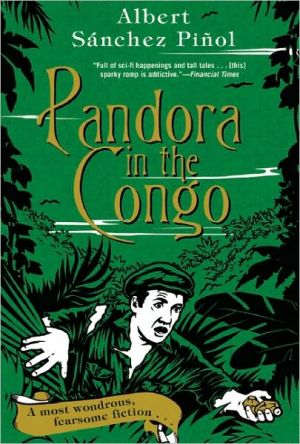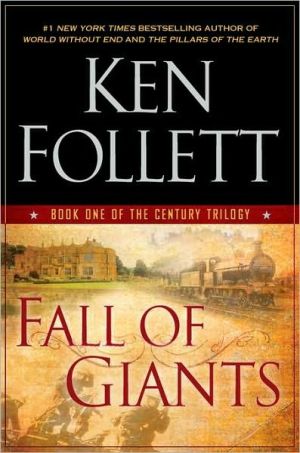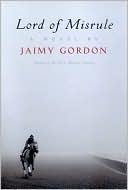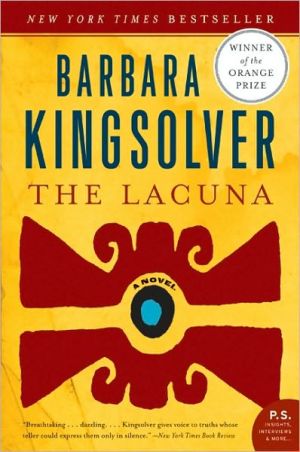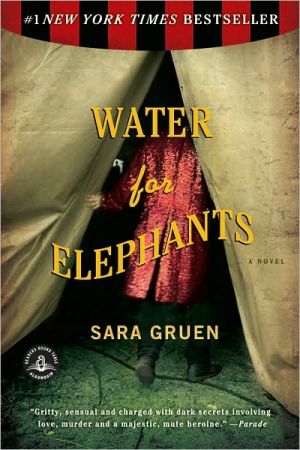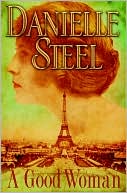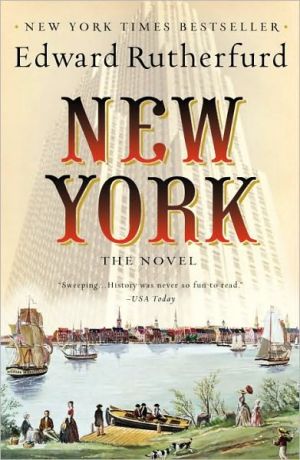Pandora in the Congo
It is 1914 when Marcus Garvey, a bedraggled British manservant, emerges from the depths of the Belgian Congo. He is the sole survivor of an ill-fated mining expedition in which both his masters, William and Richard Craver, died and from which their African porters fled. Garvey returns to London carrying two diamonds of extraordinary size, spinning a story too unspeakably terrifying to be believed. He is promptly arrested. Tommy Thompson, a London ghostwriter for a ghostwriter for a...
Search in google:
It is 1914 when Marcus Garvey, a bedraggled British manservant, emerges from the depths of the Belgian Congo. He is the sole survivor of an ill-fated mining expedition in which both his masters, William and Richard Craver, died and from which their African porters fled. Garvey returns to London carrying two diamonds of extraordinary size, spinning a story too unspeakably terrifying to be believed. He is promptly arrested. Tommy Thompson, a London ghostwriter for a ghostwriter for a ghostwriter (don’t ask!), is approached by his attorney to document Garvey’s unholy African odyssey. From his prison cell awaiting the murder trial, Garvey recounts the mind-boggling horror that the Craver mining expedition encountered in the dark recesses of the Congo. Exactly how did the Craver brothers die? What unearthly forces would drive men to commit such acts of immeasurable brutality? Could love have possibly bloomed in the heart of such darkness? Only Tommy can untangle the mysteries of the Garvey case. A brilliant literary pastiche and tongue-in-cheek pulp African adventure, Pandora in the Congo is, at its heart, a fabulist literary exploration of imagination, reminding us that there is rarely one version to any story, and always more than meets the eye.The Barnes & Noble ReviewThere are many ripe enjoyments to pluck from the fruitful involutions contained within Albert Sánchez Piñol's second novel, which could be read as a pulp-friendly response to Ian McEwan's Atonement. Both novels contains fictions within fiction. Both explore the visceral burdens of sustaining illusion. Both are kick-started by events preceding a cataclysmic world war. But I find myself fixated on a turtle: specifically, a foul-tempered tortoise named Marie Antoinette who scuttles around a boarding house tormenting this book's narrator, Tommy Thomson. Marie, the peevish terrapin in question, belongs to Tommy's landlady. She twists her form around Tommy's ankle. And, if we are to believe Tommy, Marie hates him with "an unfathomable passion." Tommy, in turn, sees Marie as little more than a crawling rugby ball, and kicks the turtle across the hallway. Upon being toppled, Marie doesn't recoil into her shell but ambushes her enemy, "lying in wait behind the leg of a wardrobe." Tommy responds by launching the turtle "off the balcony in the style of a javelin thrower."
\ Joseph SalvatorePiñol's new novel offers a sumptuous genre feast: part jungle adventure à la Haggard, part science fiction à la Wells, part anti-imperialist critique à la Conrad, and part genre-fetish à la the Hard Case Crime series…The result is a deliciously well-imagined book, and a zany pleasure.\ —The New York Times\ \ \ \ \ Publishers WeeklyPiñol's second novel (after Cold Skin) is a fanciful metafiction that lampoons adventure stories while telling one with great enthusiasm. Nineteen-year-old orphan Tommy Thomson, a ghost writer struggling to make a living in WWI London, is hired to record the account of a man on trial for murdering two sons of a duke on an expedition in the Congo. The tale that unfolds draws from Stanley, Conrad and Verne, and borrows names from historical figures, often with irony (the man on trial, for instance, is named Marcus Garvey). Tommy spends four years writing and rewriting Marcus's tale in which the doomed brothers and their enslaved African porters turned miners encounter a subterranean race reminiscent of Verne's Morlocks. (Marcus calls them Tectons and portrays them as a barbarous threat to above-ground civilization.) Piñol has layers of commentary at work, touching on perception, the nature of literature, the need for heroes and the faults of hubris. It's a smart book, and Piñol poses piercing questions; the adventure yarn that ties it all together is great entertainment. (Mar.)\ Copyright © Reed Business Information, a division of Reed Elsevier Inc. All rights reserved.\ \ \ Library JournalSánchez Piñol follows up his impressive first novel, Cold Skin, with another feat of literary fabulism that far exceeds his debut in imagination and scope. A summary of the premise would require at least twice this review's word count. It involves a team of ghostwriters for a series of pulp African adventure stories; a disastrous mining expedition to the Congo whose sole survivor is Marcus Garvey (not the Rastafarian prophet); a mysterious white-skinned, underground-dwelling African tribe; the German bombing raids of England in World War I; and a fierce, shell-less turtle named Marie Antoinette. The various plot points are indebted to Joseph Conrad, Henry Rider Haggard, H.G. Wells, and Jules Verne as well as narratives of British colonial expeditions to Africa. Originally an anthropologist, Sánchez Piñol interlaces the narrative with dark ruminations on human nature as well as an underlying concern for the legacy of colonial literature. His primary intent, however, is giving his readers their money's worth in entertainment value. This is a work that will appeal to Ph.D.s and Indiana Jones obsessives alike. Recommended for all libraries.\ —Forest Turner\ \ \ \ \ \ Kirkus ReviewsA ghostwriter's ghostwriter hires on to save a man from hanging in this sly import first published in Spain in 2005. Tommy Thompson is a young English writer desperate to be published. He'll do anything and write anything to make that happen. Through a Faustian portal enters Frank Strub, a ghostwriter's ghostwriter who proposes that Tommy become ghostwriter to a ghostwriter to . . . and so it goes. Atop this ghostly totem pole perches that prince of pulp Luther Flag, whose name on a book cover in the England of 1914 has Oprah-like potency, and whose current bestseller, Pandora in the Congo, turns out to be talismanic for Tommy. It leads him to Edward Norton, the barrister charged with representing the sorely beset Marcus Garvey, who's about to be tried for the double homicide of the aristocratic Craver brothers, mindless Richard and cunning William. The smart money heavily favors the noose. So hard-pressed is Norton for a defense that he conceives the bizarre notion of novelizing his case by hiring Tommy to ghostwrite the Marcus Garvey story, making it sympathetic, making it heartbreaking, making it clear that homicide is as inimical to Garvey as it would be to, say, the saintly hero of Pandora. Tommy enlists in the cause, but as he labors an unforeseen and certainly unbecoming alchemy takes place: He finds that he's writing a love story. More problematically, he discovers that he's telling the story of his own love for Garvey's heroine. A high-concept pastiche: part thriller, part romance, part parable, part darkest-Africa adventure. If it doesn't quite have the pop of Pi-ol's debut (Cold Skin, 2005), that's probably because it's more than twice as long.\ \ \ \ \ The Barnes & Noble ReviewThere are many ripe enjoyments to pluck from the fruitful involutions contained within Albert S?nchez Pi?ol's second novel, which could be read as a pulp-friendly response to Ian McEwan's Atonement. Both novels contains fictions within fiction. Both explore the visceral burdens of sustaining illusion. Both are kick-started by events preceding a cataclysmic world war. \ But I find myself fixated on a turtle: specifically, a foul-tempered tortoise named Marie Antoinette who scuttles around a boarding house tormenting this book's narrator, Tommy Thomson. Marie, the peevish terrapin in question, belongs to Tommy's landlady. She twists her form around Tommy's ankle. And, if we are to believe Tommy, Marie hates him with "an unfathomable passion." Tommy, in turn, sees Marie as little more than a crawling rugby ball, and kicks the turtle across the hallway. Upon being toppled, Marie doesn't recoil into her shell but ambushes her enemy, "lying in wait behind the leg of a wardrobe." Tommy responds by launching the turtle "off the balcony in the style of a javelin thrower."\ Such slapstick suggests a resourceful animal reflecting the darker fury of humankind. But this is a turtle of letters who isn't going away anytime soon. Like Don Marquis's Archy, Marie can bang out messages for Tommy on his typewriter. And we learn, years later, that the landlady has bequeathed Marie to Tommy in her will. Marie is also a rare species of turtle who can live up to 300 years, which ensures that "she will have outlived all the characters in this story." Since Tommy spends much of the novel wrangling together wild adventures, we might forgive him for his bold and extravagant claims. After all, an act of creation involves flipping an eldritch switch shifting sane trains off the smooth tracks. But what does his perspective say about his nature?\ The madcap antics peeping out with this hardshell carbineer should give a gallant reader some sense of what she's in for. For Pi?ol has whipped up a genre-blended martini with a plot twist of prime Congo lime. This odd but surprisingly appealing cocktail results in a baroque and often very funny narrative about the madness of making narratives.\ If we observe the myth that the world rests on a turtle's robust back, then Pi?ol's intrusive turtle is worth considering. For Tommy is a young man commissioned to write a manuscript "halfway between a biography and a will." A lawyer named Edward Norton has asked Tommy to meet regularly in prison with a suspect named Marcus Garvey -- whose name evokes the turn-of-the-century Pan-Africanist. The real Garvey worked at a Jamaican banana plantation and hit London roughly around the same time as Pi?ol's fictive counterpart, but this Garvey is in prison, waiting around for a double murder trial. The manuscript generated from these ironside chats will, according to Norton, serve as court testimony that will get him off death row.\ Tommy has some experience working from unusual outlines. For the novel's initial pages depict Tommy writing a racist and imperialist adventure called Pandora in the Congo, a short pulp novel in a preGreat War adventure series. There's a man named Strub, who may just burst if he can't bust out the three 80-page adventures a week he needs to support his family. He enlists Tommy to help him meet the three novels a week quota. His writing career begins and continues with Marcus at thrice the pay.\ In these meetings, Marcus tells Tommy a whopper of a story. Marcus headed to the Congo on a quest for riches with two upper-class imperalists named the Cravers. And the group engages in many barbarities with little remorse. Any worker carrying a mammoth box of champagne for the Cravers is dead from exhaustion before the day is done. But the narrative itself sympathizes not with the victims, but with "the loneliness of the executioners." Does this inverted sentiment emerge from Marcus (the source of the story) or Tommy (the narrative translator)? This is an interesting yet uncomfortable question, one rising as the relationship between story scraps and the "complete" narrative unfolds. But because Pi?ol keeps this story within the story quite gripping, he somehow manages to prevent these fetid moral dilemmas from stinking up his tropical atmosphere. At the same time, the ugliness that resides beneath the narrative suggests that this is no ordinary metafictional romp.\ Of course, every tale of this ilk needs a way in which vengeance can be exacted on the perpetrators of abuse. In this case, the imperialists see their fates sealed with the Tectons, beings who are reminiscent of H. G. Wells's Morlocks in their subterranean living preferences. Among the 12-fingered Tectons is a tall and etiolated beauty named Amgam, an appellation suggestive of a grand game. But the ghost writer becomes so taken with Amgam that he, in turn, finds himself chasing a potential ghost. He is enlisted to fight in World War I and, while on the front, he sees her in a gaseous cloud. Amgam's shape becomes "more vivid than I had ever imagined it in any of my narrative efforts." He later chases around a very tall woman who may just be Amgam. Is Tommy suffering from Stendhal's syndrome? Or is he, as he suggests at several points, an easily duped naif?\ A game is certainly afoot, but it wouldn't be sporting to reveal Pi?ol's clever finale. Needless to say, the author does plant some intriguing clues along the way. Colorful characters are often disguised by eccentric facial hair. Norton has "a thin moustache and perfectly bald head." Sergeant Long Back, who supervises the jailhouse meetings between Tommy and Marcus, has "a Serbian-style moustache." These moustaches may present isthmuses between the baldness of an unformed narrative and the hirsute hysteria of a sensationalist story run amuck. But the work here is so enjoyable that one need not peck around too much for semiotics.\ Translator Mara Faye Lethem is to be commended for preserving many of Pi?ol's zany similes in the English form. An attorney speaks before the court "as if he enjoyed murdering the hopes of his adversary." When Tommy listens to Marcus, it's "like drinking a thousand cups of coffee." A house bombed by a zeppelin resembles "a collapsed stone accordion."\ This exuberant language makes for a rollicking read, but it also disguises a sadder tale beneath the surface. To return to the turtle, Tommy may be hostile to Marie because the real world is, for him, a tremendous burden. His manuscript exceeds his wildest expectations: even Mr. MacMahon, an eccentric neighbor who doesn't really like books, is persuaded to read it. While Tommy's version of Marcus's story presents a narrative with sutures that line up, it is this same reluctant reader who pokes holes in its logic. But MacMahon exists in a reality Marcus can't quite fathom. Pi?ol's wry suggestion is that all good novelists may be like turtles holding up the world with their labor, although they may not necessarily be able to see it. But they sure make the backbreaking work look easy. --Edward Champion\ Edward Champion is a Brooklyn-based writer. His work has appeared in the Chronicle of Higher Education, The Los Angeles Times, and other distinguished and disreputable publications. He runs the cultural web site http://www.edrants.com.\ \ \
